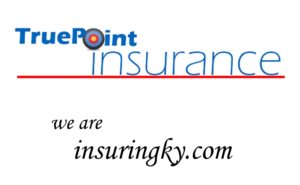Most state financial responsibility laws require proof that you are able to pay for any damage or injury you may cause while driving. Auto insurance is the way that most people comply with these laws. Typically compliance only takes liability insurance at some minimal limit that varies by state. Liability coverages include the following:
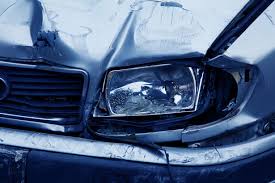 Bodily Injury Liability – insures against injury that you may cause to other persons. The key is that it involves you being held financially responsible for injuries to other persons because of your driving, your ownership or other use of your vehicle.
Bodily Injury Liability – insures against injury that you may cause to other persons. The key is that it involves you being held financially responsible for injuries to other persons because of your driving, your ownership or other use of your vehicle.
Property-Damage Liability – handles damage that you may cause to another person’s property. Again, the coverage only responds when you are financially responsible for such damage and it has to be related to your use or ownership of a vehicle.
Uninsured Motorist Coverage – This coverage typically pays for injury you suffer from an 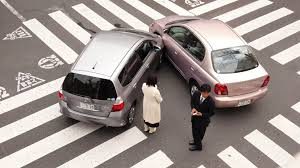 accident caused by a person who has no insurance; a person who can’t be located (“hit and run drivers”); or a person who has insurance but their insurance company is insolvent.
accident caused by a person who has no insurance; a person who can’t be located (“hit and run drivers”); or a person who has insurance but their insurance company is insolvent.
Important: Payment under this coverage is controlled by various laws that dictate what limit or limits must be sold. In some states, you may have an option to reject the coverage. Typically, the rejection must be in writing.
Underinsured Motorist Coverage – Similar to uninsured motorist, it pays for injuries caused by a driver who is inadequately insured. Example: You are seriously injured by someone carrying a bodily injury limit of $25,000, but your injuries are nearly $50,000. Your Underinsured Motorist Coverage limit is $100,000. In this instance, your policy would pay the difference between $25,000 and $50,000.
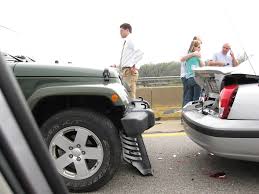 Cars are expensive to buy and repair, providing great reasons for protecting them. If you borrowed money to buy your car, or if you leased the vehicle, the lender or leasing company was likely to make certain that you had coverage to pay for any damage to the vehicle. Below are typical coverages that apply either to the vehicle or to those operating the vehicle:
Cars are expensive to buy and repair, providing great reasons for protecting them. If you borrowed money to buy your car, or if you leased the vehicle, the lender or leasing company was likely to make certain that you had coverage to pay for any damage to the vehicle. Below are typical coverages that apply either to the vehicle or to those operating the vehicle:
Collision coverage – This covers damage to your own vehicle that happens when your vehicle runs into another object, such as other vehicles, trees, light poles, mountains, etc.
Other Than Collision coverage – This also covers damage to your own vehicle that is due to sources such as fire, theft, hitting an animal, vandalism, earthquake, flood or hail.
Collision and Other Than Collision coverages are subject to deductibles (the amount a policyowner must pay). They eliminate the need for an insurer having to pay for very minor losses.
Personal Injury Protection or Medical Expense – This coverage typically handles medical expenses for injuries to you, your passengers or people who are “around” you. It may also cover you and your household if you, as a pedestrian or a bicyclist, are struck by an automobile.
Towing and Labor coverage – This coverage is to help pay for your costs to deal with a disabled car. It could help pay for the car to be towed to a service station or for any repair that occurs at the location of the car’s breakdown. Note that this coverage is for labor rather than the costs of car parts. Available coverage is minimal (often $25-$75).
Rental Reimbursement – This coverage reimburses your expense of renting a car as a temporary replacement. The car being replaced must be an insured car that’s unavailable for use because of it being damaged, lost (stolen) or destroyed in a covered loss.
Important: This is merely an introduction to complex policy coverages. Be sure to contact your agent for detailed insurance information.
COPYRIGHT: Insurance Publishing Plus, Inc. 2017
All rights reserved. Production or distribution, whether in whole or in part, in any form of media or language; and no matter what country, state or territory, is expressly forbidden without written consent of Insurance Publishing Plus, Inc.
 Volunteering in your Fisherville, KY community is a good thing; people should do more of it on a regular basis. That said, being charitable doesn’t change the fact that one still needs transportation to get from point A to point B. You’re going to use your car, covered by a personal policy, and it will raise the question where does a consumer cross the line between personal use and liability protection and being part of a non-profit effort or organization? Remember, the private car insurance policy was crafted based on the assumption the driver is traveling for personal use and nothing else.
Volunteering in your Fisherville, KY community is a good thing; people should do more of it on a regular basis. That said, being charitable doesn’t change the fact that one still needs transportation to get from point A to point B. You’re going to use your car, covered by a personal policy, and it will raise the question where does a consumer cross the line between personal use and liability protection and being part of a non-profit effort or organization? Remember, the private car insurance policy was crafted based on the assumption the driver is traveling for personal use and nothing else. 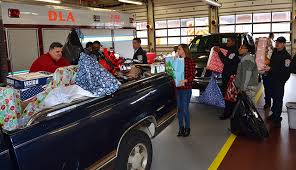 Regular volunteering is definitely not in that risk assumption and could give a provider a reason to deny a claim when the insurer asks for details leading up to the accident or damage.
Regular volunteering is definitely not in that risk assumption and could give a provider a reason to deny a claim when the insurer asks for details leading up to the accident or damage. what your volunteering consists of. We will examine your current policy for what can be changed or find a new policy that meets your needs better. Then, you can get back to helping others instead of putting yourself in a bad spot. Give TruePoint Insurance a call today to find out more.
what your volunteering consists of. We will examine your current policy for what can be changed or find a new policy that meets your needs better. Then, you can get back to helping others instead of putting yourself in a bad spot. Give TruePoint Insurance a call today to find out more.
 Contact
Contact
 Email an Agent
Email an Agent

 Click to Call
Click to Call Get Directions
Get Directions
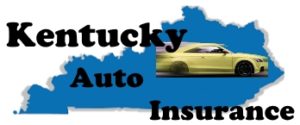
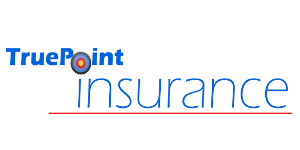

 Bodily Injury Liability – insures against injury that you may cause to other persons. The key is that it involves you being held financially responsible for injuries to other persons because of your driving, your ownership or other use of your vehicle.
Bodily Injury Liability – insures against injury that you may cause to other persons. The key is that it involves you being held financially responsible for injuries to other persons because of your driving, your ownership or other use of your vehicle. accident caused by a person who has no insurance; a person who can’t be located (“hit and run drivers”); or a person who has insurance but their insurance company is insolvent.
accident caused by a person who has no insurance; a person who can’t be located (“hit and run drivers”); or a person who has insurance but their insurance company is insolvent. Cars are expensive to buy and repair, providing great reasons for protecting them. If you borrowed money to buy your car, or if you leased the vehicle, the lender or leasing company was likely to make certain that you had coverage to pay for any damage to the vehicle. Below are typical coverages that apply either to the vehicle or to those operating the vehicle:
Cars are expensive to buy and repair, providing great reasons for protecting them. If you borrowed money to buy your car, or if you leased the vehicle, the lender or leasing company was likely to make certain that you had coverage to pay for any damage to the vehicle. Below are typical coverages that apply either to the vehicle or to those operating the vehicle: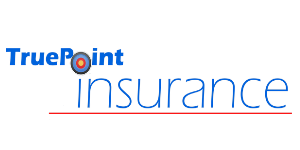
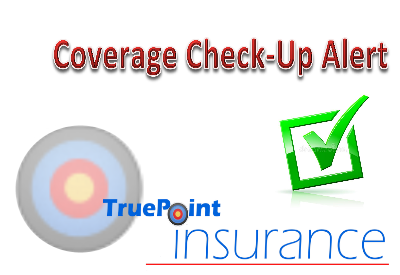


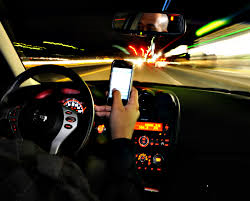
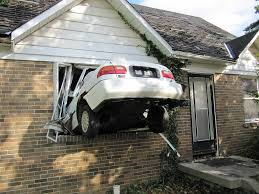
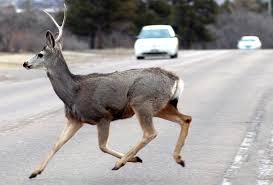

 Insurance that provides protection or indemnification against losses to the motor vehicles covered. The insurance comes in various forms. The term automobile or auto insurance is most commonly used to describe the mandatory and optional coverages required by each state’s Department of Motor Vehicles (aka DMV.)
Insurance that provides protection or indemnification against losses to the motor vehicles covered. The insurance comes in various forms. The term automobile or auto insurance is most commonly used to describe the mandatory and optional coverages required by each state’s Department of Motor Vehicles (aka DMV.)

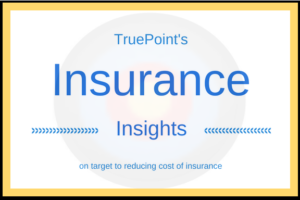
 The third question is easy. If you answered anything other than Yes, then I certainly hope that it is parked. Unfortunately, there are lots of individuals in Kentucky that are driving cars that do not have insurance coverage in place. The number is alarming; it is estimated that over 15% of Kentucky cars on the road have no insurance.Â
The third question is easy. If you answered anything other than Yes, then I certainly hope that it is parked. Unfortunately, there are lots of individuals in Kentucky that are driving cars that do not have insurance coverage in place. The number is alarming; it is estimated that over 15% of Kentucky cars on the road have no insurance.  individuals are injured. Amounts that will not go very far in today’s health care system.
individuals are injured. Amounts that will not go very far in today’s health care system.
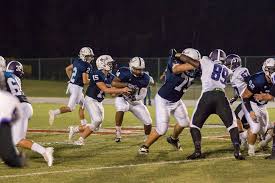 Autumn is noted for the color and delight found in the changing of the seasons! But change also arrives in the form of the colorful masses that gather and celebrate…..around football stadiums. It happens around high school games on Friday nights and on crisp cool Saturdays around colleges and universities. It happens on Sunday afternoons, Sunday Nights, Monday Nights and all the other times that they squeeze in days and times for professional football. From amateur to professional contests, upwards of 50 million people annually enjoy tailgating.
Autumn is noted for the color and delight found in the changing of the seasons! But change also arrives in the form of the colorful masses that gather and celebrate…..around football stadiums. It happens around high school games on Friday nights and on crisp cool Saturdays around colleges and universities. It happens on Sunday afternoons, Sunday Nights, Monday Nights and all the other times that they squeeze in days and times for professional football. From amateur to professional contests, upwards of 50 million people annually enjoy tailgating.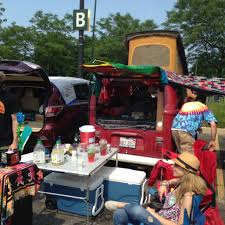 lowering vehicle tailgates and enjoying food, drinks and recreational activities! Tailgating began simply enough with socializing among folks who came to game locations early enough to secure scarce parking. The socialization was enhanced by food and drinks, then the events became more elaborate involving bring your own pitch-ins, barbecues, concerts, recreational sports, etc.
lowering vehicle tailgates and enjoying food, drinks and recreational activities! Tailgating began simply enough with socializing among folks who came to game locations early enough to secure scarce parking. The socialization was enhanced by food and drinks, then the events became more elaborate involving bring your own pitch-ins, barbecues, concerts, recreational sports, etc.